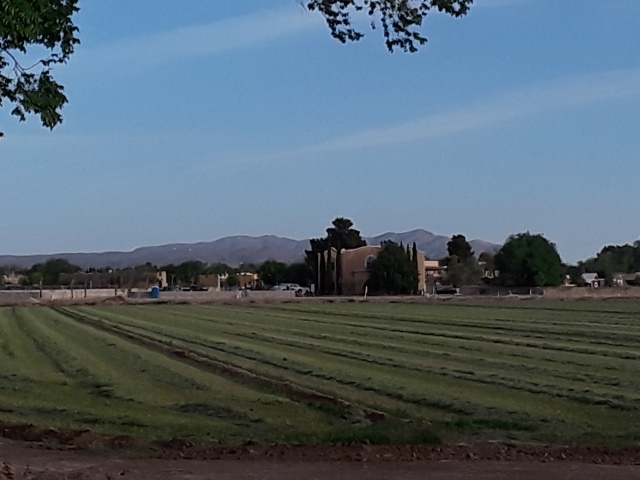
The Uber driver pulled up right on time, at the impossibly early hour of 4:50 a.m. I stood under the white spotlights of the overhang at the front entrance of my niece’s apartment building outside Washington, DC. A sole figure with two suitcases by her side. He could not have missed me. Only the birds announcing their predawn celebration accompanied me.
The tall, brown-skinned man introduced himself before lifting my heavy load into the trunk of his car. Already, in just the few words we had spoken, I thought I recognized Tedor’s accent. After we chatted a bit, I felt comfortable enough to ask his country of origin. He wanted me to guess and tried to give me a geography lesson, which doesn’t work well with me. But after I incorrectly guessed Kenya, and he revealed that it was a neighboring country, I knew my first inclination had been correct. He was from Ethiopia – the same country as my young friend whom I’d been visiting in detention for over a year in El Paso.
I so appreciated the connection that I began to share a bit of Abdinoor’s story. (I have been using the pseudonym Mathias in my blog posts to protect my friend, Abdinoor, and I am happy to finally be able to reveal his real name. Sweet, intelligent, upstanding young Abdinoor has entered Canada, where he is receiving refugee status and is no longer being treated like a criminal. Now he can finally go visit his mother in Kenya. Although I am thrilled for him, I feel it is our loss. And our shame.)
Then Tedor and I shared a little of our own stories. I learned he had been living in the Washington area for three years, along with his family. When I told him I’d lived in Virginia for 30 years, he expressed great surprise. “But you look so young! I thought you were only in your 30’s!”
It had been quite dark when he’d picked me up, so I figured he must not have seen my face clearly. Still, I was really liking this guy.
“You look young because you have love in your heart,” he explained, after I’d revealed my age. “That’s important. To have love in your heart.”
I agreed, of course.
Tedor said he appreciated my kindness, noting that few people he picked up spoke to him. Some don’t even say hello or good morning. They keep their eyes cast downward, gazing into their phone screens during the entire ride.
I tried to imagine that – someone not even acknowledging another human being inside that small, confined space. I remembered how, as much as I loved the diversity in the DC metro area, the congestion and stressful lifestyle could make it hard to connect.
But what a sweet connection I had made with this stranger in the shorter than 15-minute ride to the airport. Isn’t this what it’s really all about, I thought, as I left his little red car feeling much better than I’d had when I’d dragged myself out to the curb that morning? And Tedor clearly was in good spirits, too.
Isn’t it about kindness and connection? About recognizing our common humanity? About seeing how we are really more alike than anything?

Later, as my jet rose above the Washington National Monument, I glanced out the window to say goodbye to my beloved Virginia when I noticed an incredible message displayed on the lawn.
Incredible, because of how it spoke to my heart.
There, beaming up at me were the words: “You are not alone. No estás solo.”
Talk about connection! Who had created this message, I wondered? For whom and what was it intended?
It didn’t matter, because in that moment, it was surely meant for me. Meant to carry my spirit forward, to face the growing challenges of our work at the border and to comfort me in the further letting go that I’d experienced on this trip to Virginia.
I had just let go of my son – again. Let go of many special things we’d put aside for when he moved into his own place in the lower 48 – something he’d decided was not going to happen anytime soon. So we’d had to let things go for a song, or even less. And I had to let go of the idea that he would live a little closer than the ridiculously long and challenging time it takes to get to Nome by plane.

But because that message was also in Spanish, I felt it calling me back to El Paso. To the migrants we accompany, who face far more grievous ways of letting go than I ever will. Asylum seekers, like Abdinoor, stuck in detention, far away from families and anything familiar. And mothers who are still separated from their children, toddlers, and even their babies.
Their forced “letting go” makes mine pale in comparison. My connection with them helps me keep things in perspective.
And if all that wasn’t enough, when I got down the escalator at the El Paso airport, I unexpectedly ran into someone I knew.
Not just anyone.
Sr. Fran was the woman who’d made my first volunteer experience here possible back in 2014. We greeted each other with surprised smiles and warm hugs, genuinely glad to see each other.
I knew I was home.

















